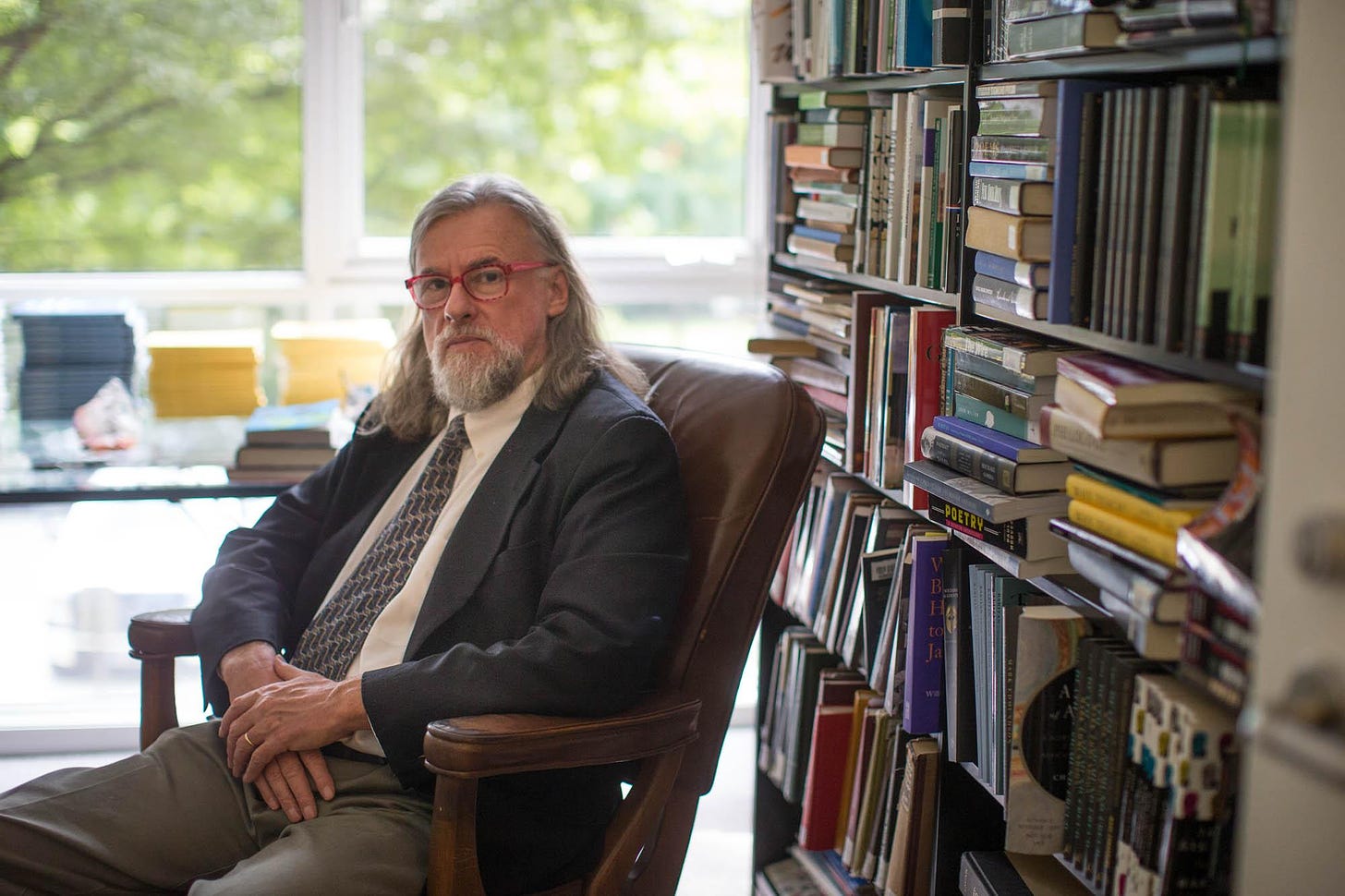Teacher: The One Who Made the Difference
I just finished Mark Edmundson's book, Teacher: The One Who Made the Difference, a rambling yet rousing tribute to his high school teacher, Franklin Lears. While Edmundson's memoir takes place in his Massachussetts public school, he writes as someone more than familiar with classical philosophy, literature, and even some pedagogy. Some quotes:
"There is something archetypal about the world of high school, something allegoric. The kids have formalized roles. The teachers have nicknames that fix their place in the meager cosmos. Even the building is full of highly charged locales - the place where this or that clique hangs out, the corridor where the fight took place, the detention room where Big Fran, the submaster, had to call the police. There is something eternally burning about this world; it lives in the mind ten, twenty, thirty years after the fact, as though it had been concocted and instilled by a small-time Dante, who had himself once been injured by it and wanted it preserved eternally as a reminder." (35)
"In every early encounter between a teacher and a student there are multiple beings present, multiple ghosts, many of them not beneficent. Great teachers react differently to this fact of pedagogical life. Some of them never show their hand. They always turn the question back on the student. They never declare themselves. This is the way of Socrates, as it is of the expert therapist (Socrates is, among many other things, the first deep analyst of the psyche, the spirit), who functions as a mirror, always showing the patient her own reflection back.
But there is another way of proceeding too, and it can be no less transforming. That is to expose oneself fully as a teacher, to be receptive to everything, every resentment, fantasy, affection, and hatred the student brings forward. And once those passions are alive, once they are in play, then let the student use them as energy for intellectual inquiry and thence for change. Such teachers are human incandescences - they have ideas, then the ideas have them; they promulgate theories, they burn brilliantly with them, and they are always, always right. They create disciples, smaller versions of themselves. They found schools. Freud was such a teacher. So was Plato. So, in his way, was Jesus." (78-79)
"In general, teachers do not want to be 'responsible' for students' screwing up their lives because they give themselves over uninhibitedly to Whitman and try to live as the old queer anarch would, or to Dickinson, who created her own God and her own cosmology and lived with them. Many teachers, I suspect, don't trust kids to sift these matters for themselves. Nor do they even really trust other adults to do it. The idea of a society full of people running amok, using the poets and artists to remake their own minds, individually and with only their own judgments and disasters and disappointments as inhibiting walls, can make teachers crazy." (239)
"It was words instead of body blows that [Lears] traded in. The powers that he had by virtue of knowing how to talk and write, commanding irony when he needed it, being able, when pushed, to impale an adversary on the point of a phrase - this power became manifest to me. And I thought back through some of the worst moments of my life, and I began to see how differently a few of them might have turned out if I could only have spoken half well rather than pitched a fit or thrown punches. Even in the face of violence, a sure mind, I began to believe, might bring you through." (250-251)
"Good teachers have many motivations, but I suspect that loneliness if often one of them. You need a small group, a circle, to talk to; unable to find it in a larger world, you try to create it in the smaller sphere of a classroom." (266)
An interesting read that got better as it went along (give it at least 50 pages to appreciate Edmundson's writing style), Teacher: The One Who Made the Difference makes for a nice wind-down at the end of the day.




